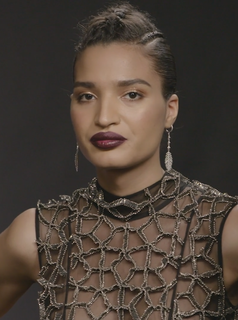A Quote by Octavia E. Butler
Related Quotes
The revolution here is from hierarchical to lateral power. That's the power shift. So increasingly a younger generation that's grown up on the internet and now increasingly distributing renewable energies, they're measuring politics in terms of a struggle between centralized, hierarchical, top-down and closed and proprietary, versus distributed, open, collaborative, transparent. This shift, from hierarchical to lateral power, is going to change the way we live, the way we educate our children, and the way we govern the world.
Hierarchical formulations died because their wedding cake levels posited a multiply fractured cosmos that does not match the Space Age revelation of a unified universe in which the earth is clearly in, rather than separated from, the heavens. Hierarchical representations do not reflect what either the world or we are like.
The brain processes meaning before detail. Providing the gist, the core concept, first was like giving a thirsty person a tall glass of water. And the brain likes hierarchy. Starting with general concepts naturally leads to explaining information in a hierarchical fashion. You have to do the general idea first. And then you will see that 40 percent improvement in understanding.
Clearly, we are a species that is well connected to other species. Whether or not we evolve from them, we are certainly very closely related to them. A series of mutations could change us into all kinds of intermediate species. Whether or not those intermediate species are provably in the past, they could easily be in our future.
Researchers keep identifying new species, but they have no idea about the life cycle of a given species or its other hosts. They cut open an animal and find a new species. Where did it come from? What effect does it have on its host? What is its next host? They don't know and they don't have time to find out, because there are too many other species waiting to be discovered and described.
When I am at a dinner table, I love to ask everybody, 'How long do you think our species might last?' I've read that the average age of a species, of any species, is about two million years. Is it possible we can have an average life span as a species? And do you picture us two million years more or a million and a half years, or 5,000?






































